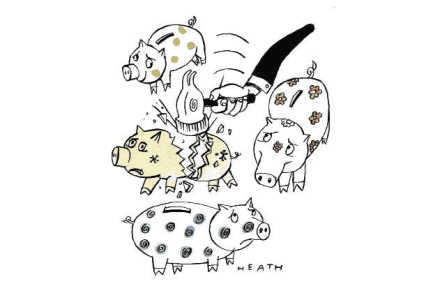Things Fall Apart: Flesh, by David Szalay, reviewed
London and the South East, The Innocent, Spring, All That Man Is, Turbulence – the titles of David Szalay’s first five novels, which won a flurry of prizes, are all captured, in a sense, by Flesh, his sixth. Much of the latest book is set in Britain’s capital, and the innocent frequently lose that tag as its protagonist battles to advance his position. When we first meet him, Istvan is 15, living with his mother in Budapest in the dying days of communism and being introduced to sex by a neighbour. Having served a jail sentence for killing the woman’s husband, this ‘solitary individual’ joins the army and, after tours







